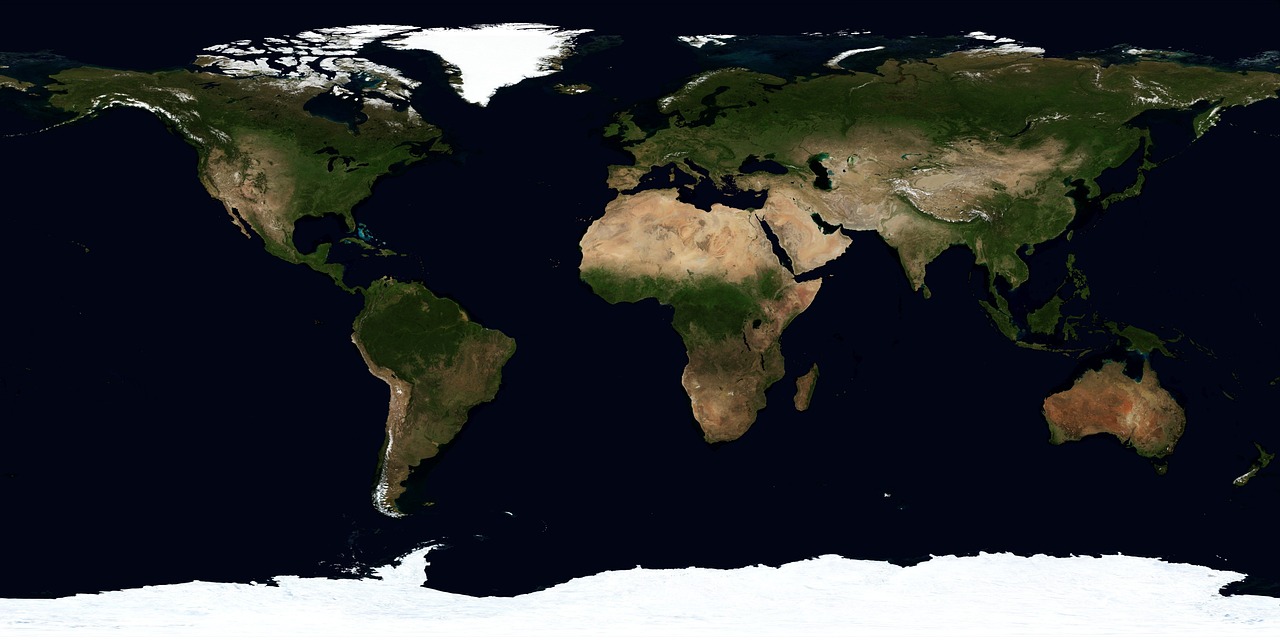
Types of Membership in the INDEPTH Network
INDEPTH has two types of membership: full and associate members.
A FULL MEMBER is a RESEARCH CENTRE that runs a health and demographic surveillance system (HDSS) field site. The member:
- Must operate an HDSS – at the minimum must have had at least one follow-up round per year following an initial census.
- Must collect data on the core components of demography and health – births, deaths, migrations and must include monitory of pregnancies and their outcomes.
- Must implement Verbal Autopsies (VAs) on deaths.
- Must provide minimum datasets annually to INDEPTH Secretariat (that include the individual-level data listed in point 2), that are of sufficient quality to be included in INDEPTHStats. The lag time for is for a minimum of 3 years.
- Must be prepared to contribute data to cross-site research.
- Does not need financial support from the Network for HDSS operations.
- Must be prepared to fund leader’s participation at Annual General Meetings (AGMs).
- Must complete member centre questionnaire annually.
- Encouraged to acknowledge INDEPTH membership in publications. However, for INDEPTH-supported projects acknowledgement of INDEPTH is mandatory.
ASSOCIATE MEMBER: Interested research institutions who do not meet the criteria for full memberships are eligible to participate as associate members. They may participate in INDEPTH meetings, conferences, etc., at their own cost.
A full member centre may run more than one HDSS field site.
Projects running some form of an HDSS that do not currently meet the criteria for full membership are encouraged to join the Network as associate members.
Types of Membership in the INDEPTH Network

INDEPTH has two types of membership: full and associate members.
A FULL MEMBER is a RESEARCH CENTRE that runs a health and demographic surveillance system (HDSS) field site. The member:
- Must operate an HDSS – at the minimum must have had at least one follow-up round per year following an initial census.
- Must collect data on the core components of demography and health – births, deaths, migrations and must include monitory of pregnancies and their outcomes.
- Must implement Verbal Autopsies (VAs) on deaths.
- Must provide minimum datasets annually to INDEPTH Secretariat (that include the individual-level data listed in point 2), that are of sufficient quality to be included in INDEPTHStats. The lag time for is for a minimum of 3 years.
- Must be prepared to contribute data to cross-site research.
- Does not need financial support from the Network for HDSS operations.
- Must be prepared to fund leader’s participation at Annual General Meetings (AGMs).
- Must complete member centre questionnaire annually.
- Encouraged to acknowledge INDEPTH membership in publications. However, for INDEPTH-supported projects acknowledgement of INDEPTH is mandatory.
ASSOCIATE MEMBER: Interested research institutions who do not meet the criteria for full memberships are eligible to participate as associate members. They may participate in INDEPTH meetings, conferences, etc., at their own cost.
A full member centre may run more than one HDSS field site.
Projects running some form of an HDSS that do not currently meet the criteria for full membership are encouraged to join the Network as associate members.

Value of the Network and its Secretariat
Excellence, Efficiency and Impact
The INDEPTH Network, through its Secretariat and its various organs, creates value for all its stakeholders globally. With Member Centres, Working Groups, Funders and Partner Scientists, the Secretariat ensures that excellence, efficiency and impact are all privileged in its approaches and outputs.
The Network boosts member centres and increases their potential for policy impact by strengthening their research capacity, ensuring excellent data management, increasing the global visibility of major health and demographic surveillance system (HDSS) analyses, and helping to secure funding for centre studies.
Value of the Network and its Secretariat

Excellence, Efficiency and Impact
The INDEPTH Network, through its Secretariat and its various organs, creates value for all its stakeholders globally. With Member Centres, Working Groups, Funders and Partner Scientists, the Secretariat ensures that excellence, efficiency and impact are all privileged in its approaches and outputs.
The Network boosts member centres and increases their potential for policy impact by strengthening their research capacity, ensuring excellent data management, increasing the global visibility of major health and demographic surveillance system (HDSS) analyses, and helping to secure funding for centre studies.
The Network’s Secretariat works closely with Working Groups to ensure excellence and continuous improvement in scientific research, as well as helping to identify funding and streamlining the process of setting up multi-centre studies.
For Funding Partners, the Network ensures that studies are conducted effectively and efficiently and ensures excellent data harmonisation and management.
The INDEPTH Secretariat creates opportunities for Researchers to access top scientists in low and middle-income countries (LMICs), the best longitudinal data, and the best available health research and demographic platforms to showcase their research. Policy Makers have access to cutting edge research that can provide them with evidenced options from which they can develop sound policies that hold promise to transform the lives of people living in countries with limited resources. The Secretariat has helped to raise more than $60m for multi-centre research.
INDEPTH strengthens research capacity at member centres by organising training programmes, workshops, and regular Scientific Conferences, as well as sponsoring MSc and PhD students and research fellows. Training programmes seek to build excellence in data collection, data analysis, proposal and report writing, and general administration and management. In the last five years, at least 250 scientists have participated in INDEPTH training.
Since its inception, the Secretariat has invested US $1.6 million in strengthening research capacity. This effort has provided the necessary training at a fraction of the cost incurred by centres providing it independently.
At least 500 researchers have participated in workshops, and at least forty have been funded to pursue graduate studies. INDEPTH has funded sixteen research fellows to work at member centres. All these initiatives have improved the technical skills of scientists across the countries with HDSSs.
The INDEPTH Scientific Conference, held every two years, assembles at least 200 scientists from the member centres, funders, peer review publication editors, Scientific Advisors and other stakeholders, to discuss study findings and plan future activities
The Network’s Secretariat works closely with Working Groups to ensure excellence and continuous improvement in scientific research, as well as helping to identify funding and streamlining the process of setting up multi-centre studies.
For Funding Partners, the Network ensures that studies are conducted effectively and efficiently and ensures excellent data harmonisation and management.
The INDEPTH Secretariat creates opportunities for Researchers to access top scientists in low and middle-income countries (LMICs), the best longitudinal data, and the best available health research and demographic platforms to showcase their research. Policy Makers have access to cutting edge research that can provide them with evidenced options from which they can develop sound policies that hold promise to transform the lives of people living in countries with limited resources. The Secretariat has helped to raise more than $60m for multi-centre research.
INDEPTH strengthens research capacity at member centres by organising training programmes, workshops, and regular Scientific Conferences, as well as sponsoring MSc and PhD students and research fellows. Training programmes seek to build excellence in data collection, data analysis, proposal and report writing, and general administration and management. In the last five years, at least 250 scientists have participated in INDEPTH training.
Since its inception, the Secretariat has invested US $1.6 million in strengthening research capacity. This effort has provided the necessary training at a fraction of the cost incurred by centres providing it independently.
At least 500 researchers have participated in workshops, and at least forty have been funded to pursue graduate studies. INDEPTH has funded sixteen research fellows to work at member centres. All these initiatives have improved the technical skills of scientists across the countries with HDSSs.
The INDEPTH Scientific Conference, held every two years, assembles at least 200 scientists from the member centres, funders, peer review publication editors, Scientific Advisors and other stakeholders, to discuss study findings and plan future activities
Member HDSSs of the INDEPTH Network: Strengthening Health and Demographic Surveillance Systems in Sub-Saharan Africa
The INDEPTH Network is a nonprofit International Organization established in 1998 as an initiative of the International Research Scientists and other stakeholders to create and support Health and Demographic Surveillance Systems (HDSS) across Africa to address the critical gaps in information on health and population in Low and Middle- income countries (LMICs).
The Network will continue to build on its core mandate. To consolidate the gains of the Network’s wealth of experience in clinical trials, epidemiology and demographic surveillance systems in over twenty research centers in sub-Saharan African countries, the current Phase of “rebooting” the Network will in addition to its core mandate, focus on Clinical trials, from phase I to IV drug and vaccine trials, and diagnostics studies.
Member HDSSs of the INDEPTH Network: Strengthening Health and Demographic Surveillance Systems in Sub-Saharan Africa
The INDEPTH Network is a nonprofit International Organization established in 1998 as an initiative of the International Research Scientists and other stakeholders to create and support Health and Demographic Surveillance Systems (HDSS) across Africa to address the critical gaps in information on health and population in Low and Middle- income countries (LMICs).
The Network will continue to build on its core mandate. To consolidate the gains of the Network’s wealth of experience in clinical trials, epidemiology and demographic surveillance systems in over twenty research centers in sub-Saharan African countries, the current Phase of “rebooting” the Network will in addition to its core mandate, focus on Clinical trials, from phase I to IV drug and vaccine trials, and diagnostics studies.
The INDEPTH Network is a nonprofit International Organization established in 1998 as an initiative of the International Research Scientists and other stakeholders to create and support Health and Demographic Surveillance Systems (HDSS) across Africa to address the critical gaps in information on health and population in Low and Middle- income countries (LMICs).
The Network will continue to build on its core mandate. To consolidate the gains of the Network’s wealth of experience in clinical trials, epidemiology and demographic surveillance systems in over twenty research centers in sub-Saharan African countries, the current Phase of “rebooting” the Network will in addition to its core mandate, focus on Clinical trials, from phase I to IV drug and vaccine trials, and diagnostics studies.
Member HDSSs in Africa
Member HDSSs in Asia

Types of Membership in the INDEPTH Network
INDEPTH has two types of membership: full and associate members.
A FULL MEMBER is a RESEARCH CENTRE that runs a health and demographic surveillance system (HDSS) field site. The member:
- Must operate an HDSS – at the minimum must have had at least one follow-up round per year following an initial census.
- Must collect data on the core components of demography and health – births, deaths, migrations and must include monitory of pregnancies and their outcomes.
- Must implement Verbal Autopsies (VAs) on deaths.
- Must provide minimum datasets annually to INDEPTH Secretariat (that include the individual-level data listed in point 2), that are of sufficient quality to be included in INDEPTHStats. The lag time for is for a minimum of 3 years.
- Must be prepared to contribute data to cross-site research.
- Does not need financial support from the Network for HDSS operations.
- Must be prepared to fund leader’s participation at Annual General Meetings (AGMs).
- Must complete member centre questionnaire annually.
- Encouraged to acknowledge INDEPTH membership in publications. However, for INDEPTH-supported projects acknowledgement of INDEPTH is mandatory.
ASSOCIATE MEMBER: Interested research institutions who do not meet the criteria for full memberships are eligible to participate as associate members. They may participate in INDEPTH meetings, conferences, etc., at their own cost.
A full member centre may run more than one HDSS field site.
Projects running some form of an HDSS that do not currently meet the criteria for full membership are encouraged to join the Network as associate members.
Types of Membership in the INDEPTH Network

INDEPTH has two types of membership: full and associate members.
A FULL MEMBER is a RESEARCH CENTRE that runs a health and demographic surveillance system (HDSS) field site. The member:
- Must operate an HDSS – at the minimum must have had at least one follow-up round per year following an initial census.
- Must collect data on the core components of demography and health – births, deaths, migrations and must include monitory of pregnancies and their outcomes.
- Must implement Verbal Autopsies (VAs) on deaths.
- Must provide minimum datasets annually to INDEPTH Secretariat (that include the individual-level data listed in point 2), that are of sufficient quality to be included in INDEPTHStats. The lag time for is for a minimum of 3 years.
- Must be prepared to contribute data to cross-site research.
- Does not need financial support from the Network for HDSS operations.
- Must be prepared to fund leader’s participation at Annual General Meetings (AGMs).
- Must complete member centre questionnaire annually.
- Encouraged to acknowledge INDEPTH membership in publications. However, for INDEPTH-supported projects acknowledgement of INDEPTH is mandatory.
ASSOCIATE MEMBER: Interested research institutions who do not meet the criteria for full memberships are eligible to participate as associate members. They may participate in INDEPTH meetings, conferences, etc., at their own cost.
A full member centre may run more than one HDSS field site.
Projects running some form of an HDSS that do not currently meet the criteria for full membership are encouraged to join the Network as associate members.

Types of Membership in the INDEPTH Network
INDEPTH has two types of membership: full and associate members.
A FULL MEMBER is a RESEARCH CENTRE that runs a health and demographic surveillance system (HDSS) field site. The member:
- Must operate an HDSS – at the minimum must have had at least one follow-up round per year following an initial census.
- Must collect data on the core components of demography and health – births, deaths, migrations and must include monitory of pregnancies and their outcomes.
- Must implement Verbal Autopsies (VAs) on deaths.
- Must provide minimum datasets annually to INDEPTH Secretariat (that include the individual-level data listed in point 2), that are of sufficient quality to be included in INDEPTHStats. The lag time for is for a minimum of 3 years.
- Must be prepared to contribute data to cross-site research.
- Does not need financial support from the Network for HDSS operations.
- Must be prepared to fund leader’s participation at Annual General Meetings (AGMs).
- Must complete member centre questionnaire annually.
- Encouraged to acknowledge INDEPTH membership in publications. However, for INDEPTH-supported projects acknowledgement of INDEPTH is mandatory.
ASSOCIATE MEMBER: Interested research institutions who do not meet the criteria for full memberships are eligible to participate as associate members. They may participate in INDEPTH meetings, conferences, etc., at their own cost.
A full member centre may run more than one HDSS field site.
Projects running some form of an HDSS that do not currently meet the criteria for full membership are encouraged to join the Network as associate members.
Types of Membership in the INDEPTH Network

INDEPTH has two types of membership: full and associate members.
A FULL MEMBER is a RESEARCH CENTRE that runs a health and demographic surveillance system (HDSS) field site. The member:
- Must operate an HDSS – at the minimum must have had at least one follow-up round per year following an initial census.
- Must collect data on the core components of demography and health – births, deaths, migrations and must include monitory of pregnancies and their outcomes.
- Must implement Verbal Autopsies (VAs) on deaths.
- Must provide minimum datasets annually to INDEPTH Secretariat (that include the individual-level data listed in point 2), that are of sufficient quality to be included in INDEPTHStats. The lag time for is for a minimum of 3 years.
- Must be prepared to contribute data to cross-site research.
- Does not need financial support from the Network for HDSS operations.
- Must be prepared to fund leader’s participation at Annual General Meetings (AGMs).
- Must complete member centre questionnaire annually.
- Encouraged to acknowledge INDEPTH membership in publications. However, for INDEPTH-supported projects acknowledgement of INDEPTH is mandatory.
ASSOCIATE MEMBER: Interested research institutions who do not meet the criteria for full memberships are eligible to participate as associate members. They may participate in INDEPTH meetings, conferences, etc., at their own cost.
A full member centre may run more than one HDSS field site.
Projects running some form of an HDSS that do not currently meet the criteria for full membership are encouraged to join the Network as associate members.

 Call us:(+233)0244806015
Call us:(+233)0244806015  Email
Email 
